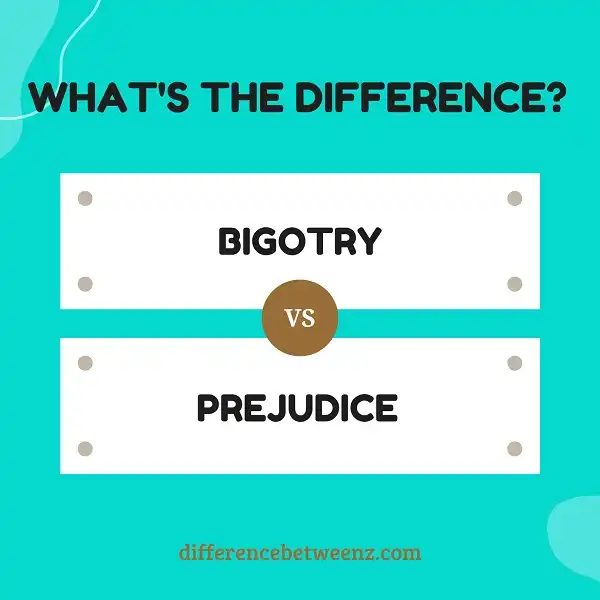In this world of constant diversity and ever-evolving political climates, it has become increasingly important to have a well-rounded perspective on different values, beliefs and even language used in conversation. Although the terms “bigotry” and “prejudice” are often used interchangeably in popular discourse these days, there is a distinction between the two that can be crucial for contextually understanding various social issues brought about through our polarized culture. In this blog post we will explore what bigotry and prejudice truly mean, as well as discuss how one can recognize where these distinct behaviors stem from. It is easy to get confused with such problematically similar words; however by focusing in on their nuances you will be able to better cultivate respect among your peers while also interpreting conversations more accurately than before.
What is Bigotry?
Bigotry is an ugly and destructive attitude, rooted in prejudice and ignorance. It’s the refusal to recognize or respect the beliefs of members of a group that one doesn’t share an affinity with; essentially, it is an excessive intolerance of others who are part of a group deemed ‘undesirable’. Bigotry stifles dialogue, deliberation and critical thinking, instead opting for crude, divisive stereotypes that have little basis in reality. Bigotry will never be productive or beneficial; unfortunately its prevalence in society continues to be a problem we must strive to combat.
What is Prejudice?
Prejudice is a cognitive bias that can manifest itself in many forms, such as making assumptions about people based on their gender, race, or nationality without having all the relevant information. Prejudice is a damaging mental construct that can lead to discrimination and can even foster animosity between groups of people.
Prejudice is not inherent in humans but must be actively taught, often through ideology embedded in an individual’s culture and upbringing. Prejudice should be regarded with great skepticism and challenged at every turn, for it seeks only to limit our connections with other human beings. We can all reject prejudice by questioning our own beliefs and recognizing the potential humanity in everyone we meet.
Difference between Bigotry and Prejudice
Bigotry and prejudice are two words often used interchangeably but have different meanings. Bigotry is an attitude of unfair and intolerant judgement towards someone because of their race, religion, gender, or beliefs.
- Prejudice, on the other hand, is an unfounded belief or opinion about a particular group of people without having any actual knowledge of them. Bigotry has roots in prejudice but differs because it comes with a stronger emotional component which leads to actions such as discrimination and hates speech.
- Bigotry is a form of disrespect and intolerance, while prejudice can more accurately be described as an attitude rooted in misunderstanding or lack of information.
- Understanding the difference between bigotry and prejudice can help us identify these unhealthy attitudes within ourselves and others so that we can better address them in our society today.
Conclusion
It is important to know the distinction between the words’ bigotry and prejudice in order to use them correctly. Bigotry refers to an inflexible, unreasonable attachment or preference for one particular thing while prejudice refers to a preconceived, unfavorable judgment or opinion. Both words can be used to describe discriminatory behaviors but knowing the difference can help you communicate more accurately. Did this article help clear up any confusion surrounding these two terms? Do you have any other questions about vocabulary? Let us know in the comments below!


